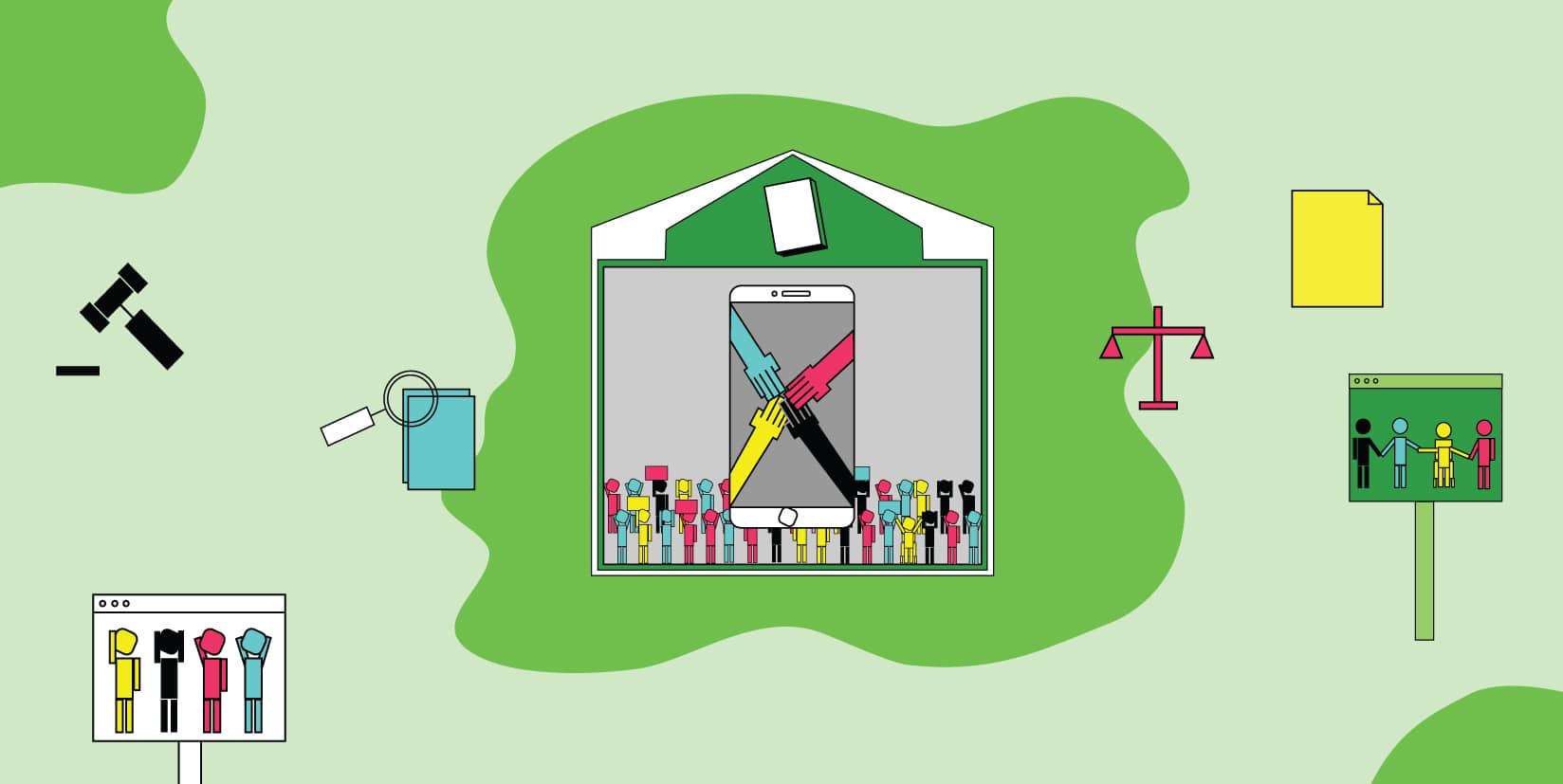The rising tide of protests in 2020 is reigniting discussions on peaceful assembly and association worldwide. With social distancing measures in place, the COVID-19 pandemic has amplified challenges to the exercise of these rights in the digital age. Access Now is proud to launch Defending peaceful assembly and association in the digital age: takedowns, shutdowns, and surveillance — our pioneering report on the impacts of technology on the rights to freedom of peaceful assembly and of association worldwide. See our report snapshot for a summary.
“It is in an unprecedented global context — the rise of internet shutdowns worldwide, the prevalence of unlawful surveillance, increases in privatization, and the impact of the COVID-19 pandemic — that we chose to examine the state of the rights to freedom of peaceful assembly and of association from a digital rights perspective,” said Laura O’Brien, U.N. Advocacy Officer at Access Now. “Flourishing facial recognition and other biometric tracking programs, combined with privatized platforms and the looming threat of internet shutdowns, deprive us of our right to freely demonstrate and assemble in defense of our rights.”
As COVID-19 continues to spread, social movements — from Hong Kong to Sudan — are increasingly using the internet to exercise their rights to organize, voice opinions, call others to action, express solidarity, and access life-saving information. They are developing creative approaches to fight for their rights in digital spaces, working within the constraints of physical distancing measures. However, governments are leveraging the internet and digital technologies to quell dissent and strip people of their capacity for collective action, online and off, even in contravention of their own domestic laws, and international human rights obligations. In fact, in 2019, protests were the most commonly observed cause of internet shutdowns — a blatant action to quell assembly and silence dissenting voices.
Highlighting case studies from across the world, Access Now’s new report puts forth recommendations for multiple stakeholders to strengthen their commitment to protect the rights of freedom of peaceful assembly and of association, and examines three current issues:
- Access, connectivity, and internet shutdowns: Access to an open, secure, affordable and stable internet connection is fundamental to the enjoyment of various human rights. Yet, governments around the world are impairing the exercise of these rights, including freedom of peaceful assembly and of association, by imposing internet shutdowns — such as this year’s government-mandated one in Ethiopia — in violation of international human rights standards.
- Unlawful surveillance and the right to privacy: Privacy and anonymity provides activists and protesters with some level of assurance that they will not be identified and subject to reprisals for engaging in protests. However, the use of surveillance technology to monitor individuals and their activities online and off — such as during the protests in Hong Kong and India in 2019 — triggers fear of identification and persecution, creating a chilling effect on free expression and assembly.
- The influence of the private sector in the online civic space: Tech companies hold extreme power over spaces where individuals exercise their rights, including the right to protest. In light of this power, states often pressure tech companies to disrupt internet access, remove content or hand in users’ data, as part of strategies to hinder individuals’ right to freedom of peaceful assembly and expression. Transparency reporting is essential to monitor tech companies’ activities and demand accountability.
“Assemblies are changing, irreversibly, due to new technologies and especially the COVID-19 pandemic. It is fundamental that governments, the private sector, and international institutions all put in place initiatives to effectively prevent the unlawful use of technology as a barrier to the exercise of our freedom of peaceful assembly,” said Peter Micek, General Counsel and U.N. Policy Manager at Access Now. “Protesters continue to innovate and evade this digital repression, but the burden is on governments to refrain from putting us in the sights of their cyber weapons — and on the private sector to stop selling to abusive agencies.”
Fully committed to prioritize this topic beyond COVID-19, Access Now is building off of this report to leverage data collected from our campaigns and Digital Security Helpline, and further engage and support key stakeholders addressing this issue, including human rights experts and their mandates. On July 15, Peter Micek joined the U.N. Special Rapporteur on Freedom of Assembly and Association, Clément Voule, and key stakeholders, on a webinar, “COVID-19, Social Movements, and Peaceful Protests.” Here, Peter Micek’s contribution on the harms caused by internet shutdowns on the exercise of freedom of peaceful assembly, and the need for actions aimed at reducing individuals’ fear of reprisals and threats for protesting and speaking up, were recognized and supported.
Defending freedom of peaceful assembly and association in the digital age: takedowns, shutdowns, and surveillance calls attention to the major current threats to the rights to freedom of peaceful assembly and of association and aims to trigger further reflection and discussion on this issue. Access Now’s report can be used as a building block for advancing best practices in safeguarding the rights of protesters worldwide.
Download the full report, and report snapshot.
